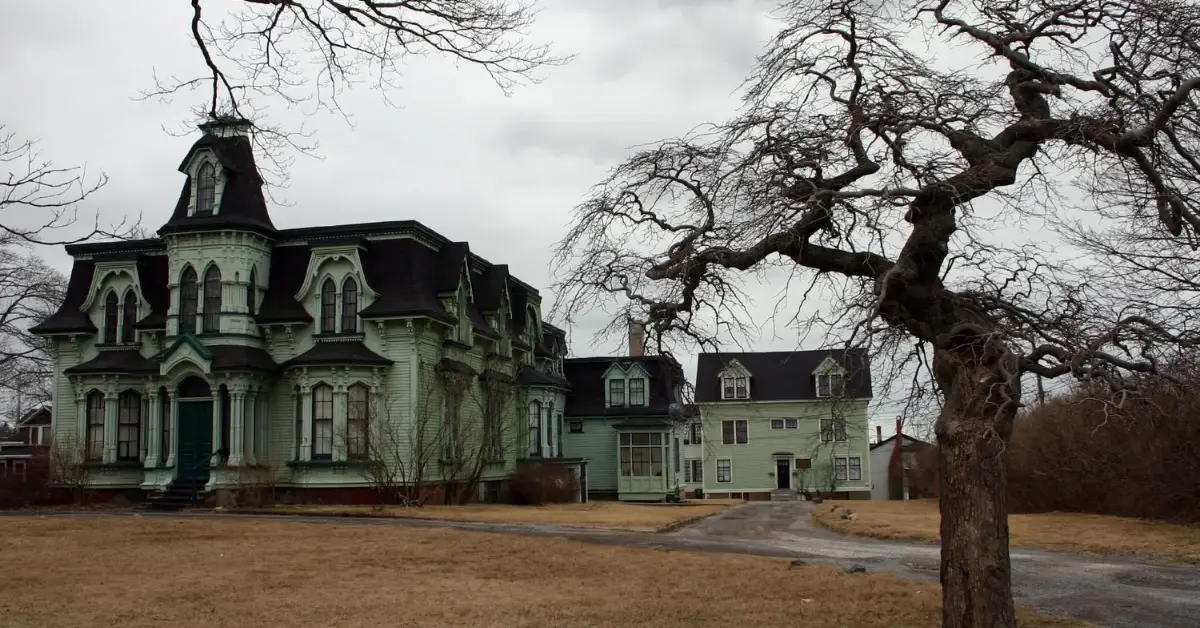How to Handle Death Disclosures When Selling in Alaska
If you’re selling a home in Alaska, here’s the hard truth: if a death happened in the house and you handle it the wrong way, you’re inviting a lawsuit. I’ve seen deals blow up, buyers walk, and sellers pay big because they tried to “keep it simple” or waited for the buyer to ask. That’s not a strategy—it’s a risk.
In Alaska, disclosure isn’t just paperwork; it’s protection. You, your agent, and your buyer all need clarity on what must be said, when to say it, and how to put it in writing so it stands up later. When people get sued here, it’s rarely because they disclosed too much—it’s because they disclosed too late, too vaguely, or not at all.
I’m going to walk you through this like I would with a client: what the law expects, where sellers and agents go wrong, and how to use the state’s disclosure form the right way. I’ll show you smart wording that’s honest without being dramatic, the timing that keeps your deal clean, and the records you should pull before you list.
You’ll also see what most online guides miss—how buyers react when they find out late, what “I didn’t know” does (and doesn’t) protect, and when you need an Alaska-licensed pro to step in. Think of this as your step-by-step plan to stay transparent, keep trust, and close without fear of a nasty surprise after recording.
If you want a quiet closing and zero “we need to talk” calls from an attorney later, start with clean disclosure. I’ll show you exactly how.
Understanding Alaska’s Death Disclosure Law
Let’s get straight to it—Alaska doesn’t leave much room for guessing when it comes to disclosure laws. Under Alaska Statute 08.88.615, if you or your agent know that a murder or suicide happened in the home within the past year, you’re legally required to tell potential buyers. Period. This isn’t about gossip or superstition—it’s about trust and transparency in one of the biggest transactions of your life.
I know what you might be thinking: “What if it was a natural death? What if it happened years ago?”
Here’s the key difference—Alaska law focuses specifically on violent or self-inflicted deaths that occurred within one year before the sale. Natural deaths or those that happened long ago usually don’t fall under mandatory disclosure, but that doesn’t mean you should automatically hide them. Sometimes, being upfront even when you don’t have to can save you from future trouble if the buyer finds out another way.
The one-year rule applies to licensed agents too. If an agent is aware of a death that fits this description, they’re legally obligated to inform the buyer, even if the seller doesn’t mention it. That’s because Alaska treats death disclosure as a “material fact”—something that could influence a buyer’s decision. And if you or your agent knowingly skip it, that’s considered misrepresentation, which can open the door to fraud claims.
One more thing most sellers overlook: “I didn’t know” isn’t a solid defense if it turns out you could have known. The law expects reasonable effort—checking your own records, asking questions, and being honest about what you do or don’t know.
In short, Alaska’s death disclosure rule isn’t meant to scare you—it’s there to keep everyone on the same page. Buyers appreciate honesty, and courts reward it. The sellers who get into trouble are usually the ones who thought no one would find out.
If you’re curious how other states handle similar laws, especially California where sellers must disclose deaths up to three years prior, read our detailed guide on why sellers in California must disclose deaths in their homes and how those rules compare with Alaska’s one-year disclosure requirement.
How Alaska’s Residential Disclosure Form Really Works

Now that you know what Alaska law expects, let’s talk about how you actually disclose it. The process isn’t complicated—but it has to be done by the book.
Every home seller in Alaska uses the Residential Real Property Transfer Disclosure Statement (Form REC 4229), published by the Alaska Department of Commerce, Community, and Economic Development. You can find it here:
This is the official form that both you and your buyer sign. It covers everything from the roof and plumbing to, yes, “any murder or suicide occurring on the property within the preceding one year.” That exact language appears on the form, and it’s there for a reason. When you check that box, you’re confirming that you’ve made the required disclosure—protecting both yourself and your agent.
Here’s the part most people miss: timing matters. The disclosure form has to be delivered before the buyer makes an offer. If it’s given late, the buyer has the right to cancel the deal within three days after receiving it. That means missing this step could cost you a serious buyer—and delay your closing.
What if you’re not sure about the details? Alaska’s disclosure form allows for “approximation” when the seller has made a reasonable effort to find accurate information but doesn’t know exact dates or details. In other words, honesty and effort matter more than perfection. It’s always better to say, “To the best of my knowledge,” than to leave the question blank or hope it gets ignored.
Think of this form as your legal shield. Filling it out correctly, keeping a signed copy, and giving it to the buyer on time can make the difference between a smooth sale and a courtroom headache.
Next, we’ll look at what happens when sellers skip these disclosures—and why that simple checkbox can protect you from a lawsuit later.
What Happens If You Don’t Disclose — The Real Legal Risks
Here’s where things get serious. In Alaska, failing to disclose a death on your property—especially if it was a murder or suicide within the last year—can trigger more than just an angry buyer. It can turn into a full-blown legal mess.
Disclosure responsibilities aren’t limited to deaths—federal initiatives are also reshaping what sellers must reveal. Learn how new homebuyer protection laws on lead hazards are influencing disclosure standards nationwide and raising the bar for seller accountability.
If a buyer later discovers you knew something and didn’t share it, you could face civil penalties, rescission (deal cancellation), or even fraud claims. And once the words fraud or misrepresentation show up in a complaint, you’re in deep.
Let’s break down what that can actually look like:
- Deal Cancellation (Rescission): The buyer can legally back out, even after closing, and demand a refund of the purchase price if they can prove you withheld a material fact.
- Damages & Legal Fees: Under Alaska law, courts can award triple damages and force you to pay the buyer’s attorney fees if they prove the omission was intentional.
- Agent Liability: Real estate agents aren’t off the hook either. If an agent was aware of a violent death on the property and failed to disclose it, they can face disciplinary action under AS 08.88.615 (you can read the full code here.
- Reputation Damage: Word spreads fast in Alaska’s small real estate circles. Once buyers or brokers label you as “the seller who hid things,” future deals can become an uphill climb.
In one case highlighted by CRES Insurance, an agent failed to mention a previous murder in the home, assuming it wasn’t “material.” The buyer found out through local gossip—and the deal unraveled. The agent’s license came under review, and the seller faced claims for emotional distress and misrepresentation.
The takeaway? Buyers can forgive a sad story—but not a hidden one. Alaska’s real estate laws are written to protect the buyer’s right to know what they’re walking into, emotionally and financially.
When in doubt, tell the truth. You’re far more likely to lose a deal by hiding something than by being upfront about it.
In the next section, we’ll break down the common mistakes sellers make when trying to handle these disclosures—and how to avoid turning an honest sale into a legal nightmare.
Common Mistakes Alaska Home Sellers Make (and How to Avoid Them)
After years of seeing deals go sideways, I can tell you this—most disclosure problems don’t happen because people are dishonest. They happen because people assume the rules are flexible. In Alaska, they’re not.
Here are the biggest mistakes I see over and over—and how you can steer clear of them:
- Waiting for the buyer to ask. Many sellers think they only have to mention a death if the buyer brings it up. Wrong. The law requires disclosure even if no one asks. If you know about a murder or suicide within the last year, you must state it clearly—proactively.
- Thinking “natural death” means “no problem.” While natural deaths aren’t legally required to be disclosed, they can still impact buyer trust. If it’s public knowledge, or if neighbours are likely to mention it, consider a short note like “Natural death occurred; no structural or health impact.” Transparency builds confidence.
- Disclosing too late. Timing is everything. If you hand over the disclosure form after an offer, the buyer gets three days to cancel once they finally see it (per Alaska’s disclosure statute and REC 4229 form). That delay alone can kill your deal.
- Using vague language. Writing “incident may have occurred” or “buyer to verify” doesn’t protect you—it raises suspicion. Use clear, factual wording:
- Forgetting the agent’s duty. Even if the seller “forgets,” the agent can’t. Under Alaska Statute 08.88.615, a licensed real estate professional must disclose a violent death they’re aware of. Agents who skip this can face disciplinary action, suspension, or fines.
- Ignoring documentation. Always keep copies—signed disclosure forms, acknowledgment emails, anything that shows when and how the information was given. If there’s ever a dispute, proof beats memory.
These small oversights can turn into lawsuits faster than most sellers realize. And once the buyer’s attorney starts digging, it doesn’t matter whether you meant harm or not—the paper trail tells the story.
So here’s my advice: before listing your home, do a quick “disclosure audit.” Go through the Alaska Residential Transfer Disclosure Form (REC 4229), ask your agent to review it with you, and confirm that every box is answered truthfully. It’s the best five minutes you’ll ever spend protecting yourself.
Step-by-Step Strategy to Disclose Deaths the Right Way in Alaska

Let’s make this simple — you don’t need a law degree to protect yourself. You just need a clear plan and a paper trail. Here’s a step-by-step strategy that every Alaska home seller (and agent) should follow before listing.
- Step 1: Do a quick background check on your own property. Start by reviewing your own records. Look up local news, old listings, or even talk to neighbours if you recently bought the home. A quick search on Google News or public police archives can confirm if any violent death or suicide was ever reported at your address. It shows “reasonable effort,” which matters under Alaska law.
- Step 2: Use the official disclosure form (REC 4229). Download it directly from the Alaska Department of Commerce. Complete it carefully. If a death occurred, check the right box and include a brief factual note — no drama, no details.
- Step 3: Deliver the form before the buyer’s offer. Timing is critical. Hand it over before any offer is made. If you wait until after, the buyer gets three days to cancel the deal.
- Step 4: Keep proof of delivery. Save a signed copy, timestamped email, or certified delivery receipt. If there’s ever a dispute, that document proves you followed the law. Remember—“I said it” doesn’t count in court. “I documented it” does.
- Step 5: Prepare honest but calm language. You don’t have to lead with the bad news. Keep it short and factual. Avoid emotional phrasing like “tragic” or “horrific.” Buyers care more about honesty than tone. If they ask for details, answer directly or refer them to public records.
- Step 6: Loop in your agent early. A licensed agent is required to disclose if they know about a death on the property. Tell them everything up front so your disclosures match. It keeps everyone on the same page — and off the witness stand later.
- Step 7: Get legal backup if anything feels uncertain. If you suspect there’s an incident that isn’t fully documented, speak with a real estate attorney familiar with Alaska law. They can review your disclosure language to ensure it’s both transparent and protective.
When you follow these steps, you not only follow the law—you project confidence. Buyers can sense when a seller is hiding something, and that tension kills trust. When you’re straightforward from day one, you set the tone for a smooth, drama-free closing.
Next, we’ll zoom out and see how Alaska’s rule compares with other states—so you understand just how unique (and important) your disclosure obligations really are.
Final Takeaway — Keep It Honest, Keep It Documented
Here’s what it all boils down to: disclosure is not about scaring buyers; it’s about protecting yourself. The law exists to create fairness, not fear. When you’re upfront, you remove the one thing that most often kills a deal — doubt.
A few things to remember before you sell:
- Review your disclosure form carefully and update it if you learn new information.
- Communicate with your agent clearly so there’s no mismatch in what gets shared.
- Keep everything in writing — emails, forms, dates. Documentation is your safety net.
- If something feels uncertain, get professional advice before signing anything.
Selling a home should be a fresh start, not a lingering worry. By following Alaska’s disclosure law with care and integrity, you protect your reputation, your finances, and your peace of mind.
Real estate transparency isn’t just an Alaska issue — states across the country are taking steps toward more honest, affordable home sales. For example, New Hampshire’s new housing law was recently passed to expand affordable living options and strengthen trust between buyers and sellers, showing how the housing landscape is evolving nationwide.
So, if you’re preparing to list your home, take one small but powerful step: fill out that form completely and tell the truth. You’ll sleep better knowing your sale — and your conscience — are both clean.
Myths vs Reality About Stigmatized Properties
Myth 1: “If it happened years ago, I don’t have to mention it.”
Reality: Legally, you may not have to, but buyers value honesty. If a death was public or well-known, disclosure can prevent rumours from derailing your sale.
Myth 2: “A haunted house has to be reported.”
Reality: There’s no law about supernatural claims. Only verifiable violent or self-inflicted deaths within one year are covered.
Myth 3: “Disclosing a death will destroy the home’s value.”
Reality: Studies show most buyers simply want transparency. Homes sell just fine when sellers are straightforward early on.
Myth 4: “Agents can choose not to mention it.”
Reality: In Alaska, agents are legally required to disclose if they’re aware of a qualifying death. Avoiding that rule can cost them their license.
Disclaimer: This information is intended for general educational purposes only and does not constitute legal advice. Real estate laws can change, and every situation is different. Before making any decision about disclosure or sale, consult a licensed real estate attorney or broker in Alaska.
What do you think — do sellers have a right to privacy, or should buyers always know everything about a home’s past? Share your thoughts below.
Want more expert tips on selling your home safely and confidently? Visit Build Like New for in-depth guides on home improvement, real estate laws, and smart homeowner strategies that protect your investment and peace of mind.


